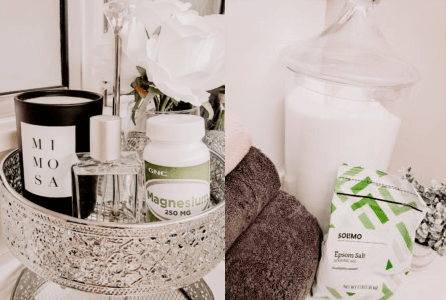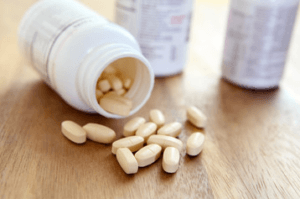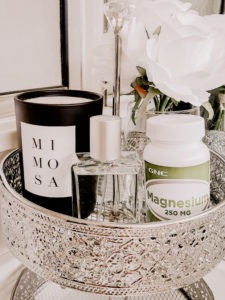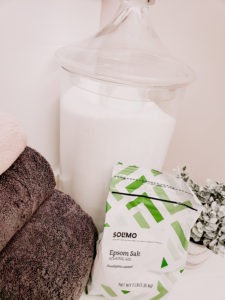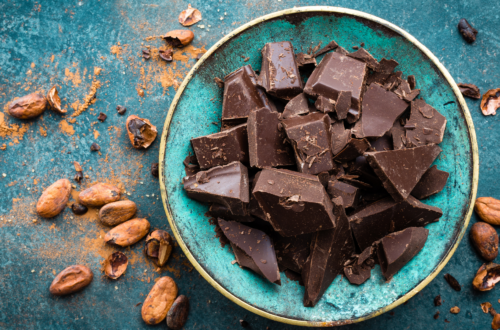
Why Magnesium is Important & How to Get It
Are you familiar with Magnesium? The fact is, you've probably heard of it but are not only unaware of its benefits but also unaware that you actually need it for a properly functioning body. Statistics show that 60% of Americans don't actually get enough Magnesium for their body. That is a pretty staggering number in my opinion. It means over half of the population isn't getting enough. It also means you aren't getting it through your diet. Which is really how we should be getting all of our needed nutrients but the majority of Americans has a less than favorable diet. While I have a good diet due to keto, I supplement magnesium but more about that later.
According to The Cleveland Clinic, you should be getting the following amounts of Magnesium:
- Men: 400–420 mg
- Women: 310–320 mg
Now you may ask what everyday foods are rich in Magnesium. Of course, I have a list for you 🙂 My list is about real, whole foods. You can get fortified foods but let us opt for the real deal. You can get Magnesium from:
- Almonds, dry roasted
- Apple
- Avocado, cubed
- Banana
- Beef, ground, 90% lean
- Black beans, cooked
- Broccoli, chopped & cooked
- Carrot, raw
- Cashews, dry roasted
- Chicken breast
- Dark chocolate
- Edamame, shelled, cooked
- Halibut
- Kidney beans, canned
- Milk
- Oatmeal, instant
- Peanut butter, smooth
- Potato
- Raisins
- Rice, brown, cooked
- Salmon, Atlantic, farmed
- Spinach
- Yogurt, plain, low fat
levels
Overindulging in sugar, caffeine, alcohol, and salt may contribute to lower levels. Certain medications may change how your body processes magnesium and the levels of magnesium. Due to keto, I increase my salt so this is a factor.
deficiency
Magnesium deficiency can be serious and you may not know that you aren't getting enough as the symptoms are subtle (muscle issues, mental issues, osteoporosis, HBP, asthma, and irregular heartbeat) but the potential risks are scary (seizures, cardiac arrhythmias (abnormal heart patterns), coronary artery vasospasm, or sudden death).
benefits
Bone Health & Calcium Absorption: Important for bone formation. It also helps to properly metabolize calcium. Magnesium is said to reduce muscle aches, pains, and twitches. Many keto people take magnesium to help with ketosis muscle cramping.
Diabetes: Interesting to note, studies show that magnesium lowers the risk of diabetes. Speak to your doctor about this.
Heart Health: Studies have shown that those with the highest intake of magnesium were found to have a 58 percent lower chance of coronary artery calcification and a 34 percent lower chance of abdominal artery calcification. Additionally, studies show that patients who receive magnesium soon after a heart attack have a lower risk of mortality.
Migraines: As a migraine sufferer, I found this to be interesting. Low levels of magnesium are shown to be the cause of headaches and migraines. Studies are suggesting that magnesium therapy may help you experience less frequent and less intense migraines. It should ONLY be administered and followed by your health professional.
Anxiety: Studies also show that magnesium is helping with a variety of anxiety issues. Personally, I believe anxiety issues are more prevalent than we know. Especially with certain ethnicities, it is not something they talk about.
additional ways to get magnesium
As previously stated, Americans don't get enough magnesium and is due in part to our poor diets. Our poor diets are often caused by our busy schedules and not being able to incorporate real foods that are magnesium-rich. Here are some ways to get more magnesium:
Supplement
If you aren't getting enough magnesium through magnesium-rich food, you may want to talk to your doctor about incorporating a supplement. Because of my keto and migraines, my doctor suggested magnesium citrate as a supplement for me.
Another way to add magnesium is through your bathing. You may be familiar with adding Epsom salts to bathing routines for self-care rituals, but it also is absorbed through your skin for added magnesium. Now there's an even better reason for that self-care ritual of quiet, candlelit, Epsom salt baths! If that's not enough reason, an Epsom salt bath is said to help you get better sleep. For the bath, add 2 cups of Epsom Salts and soak for 30 minutes. I opt for these Epsom Salts from Amazon (I get (6) 3-pound bags for $17.75 on subscribe and save). There are different scents but I get the Eucalyptus scented which is the magnesium with natural eucalyptus and spearmint leaf oils. You can choose to get plain Epsom salts and add your choice of oils (2 cups of the ES and about 15 drops of your choice of oils).
Do you get enough Magnesium? Do you supplement in some way? I'd love to hear your thoughts on magnesium.


